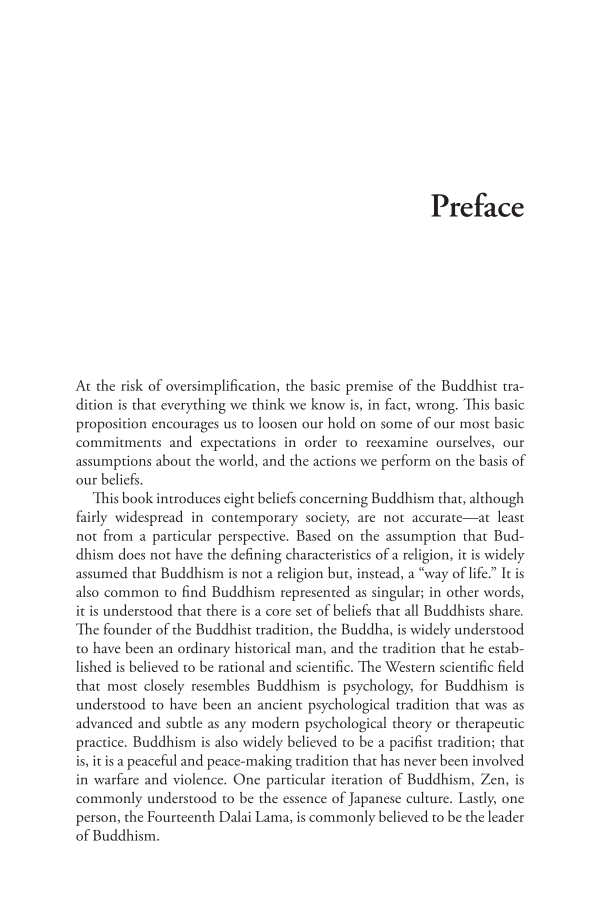Preface At the risk of oversimplification, the basic premise of the Buddhist tra- dition is that everything we think we know is, in fact, wrong. This basic proposition encourages us to loosen our hold on some of our most basic commitments and expectations in order to reexamine ourselves, our assumptions about the world, and the actions we perform on the basis of our beliefs. This book introduces eight beliefs concerning Buddhism that, although fairly widespread in contemporary society, are not accurate—at least not from a particular perspective. Based on the assumption that Bud- dhism does not have the defining characteristics of a religion, it is widely assumed that Buddhism is not a religion but, instead, a “way of life.” It is also common to find Buddhism represented as singular in other words, it is understood that there is a core set of beliefs that all Buddhists share. The founder of the Buddhist tradition, the Buddha, is widely understood to have been an ordinary historical man, and the tradition that he estab- lished is believed to be rational and scientific. The Western scientific field that most closely resembles Buddhism is psychology, for Buddhism is understood to have been an ancient psychological tradition that was as advanced and subtle as any modern psychological theory or therapeutic practice. Buddhism is also widely believed to be a pacifist tradition that is, it is a peaceful and peace-making tradition that has never been involved in warfare and violence. One particular iteration of Buddhism, Zen, is commonly understood to be the essence of Japanese culture. Lastly, one person, the Fourteenth Dalai Lama, is commonly believed to be the leader of Buddhism.
Document Details My Account Print multiple pages
Print
You have printed 0 times in the last 24 hours.
Your print count will reset on at .
You may print 0 more time(s) before then.
You may print a maximum of 0 pages at a time.












































































































































































